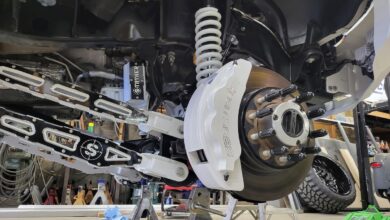Shell, Pennzoil Target Net-Zero Emissions by 2050
Shell is aiming to be a net-zero emissions energy business by 2050 or sooner, the company announced, and will now offer customers carbon-neutral Pennzoil lubricants for passenger cars in North America.
“The transition to a low-carbon energy future will require a range of solutions and Pennzoil is dedicated to helping drive the future and providing carbon-neutral alternatives,” the company said in a statement announcing its carbon-neutral products. “To achieve this, Pennzoil will contribute to Shell’s target to be a net-zero emissions energy business through several factors: avoid emissions, reduce emissions and offset emissions.”
Globally, Shell aims to offset the annual emissions of more than 52 million gallons of advanced synthetic lubricants, expecting to compensate around 700,000 tons of carbon dioxide equivalent (CO2e) emissions per year, which is equivalent to taking approximately 340,000 cars off the road for one year.
“Motorists are more conscious of contributing to a more sustainable lifestyle and are looking for ways to reduce their net carbon footprint,” said Machteld de Haan, CEO of Pennzoil-Quaker State Company and vice president Shell Lubricants Americas. “As one of the brands from the world’s leading lubricants supplier, Pennzoil is proud to be a part of the largest carbon-neutral program in the lubricants industry; one that compensates for the full lifecycle emissions of these select products. Our carbon-neutral lubricants will provide motorists with less carbon-intense choices without having to compromise the high performance and engine protection that they expect from Pennzoil.”
To achieve carbon-neutrality, Shell has engaged in a transaction where an amount of carbon dioxide emitted during the acquisition and pre-processing of raw materials, lubricant production, packaging, distribution and the subsequent use of the Shell Lubricants products, will be removed from the atmosphere through a nature-based process.
One of the ways Shell plans to avoid emissions is by optimizing efficiency during production and design of its products by using more recycled content in its bottles, where possible. Shell will reduce emissions by a number of avenues, including improved energy efficiency. More than 50% of electricity in the Shell Lubricant Blending Plants now comes from renewable sources. Lastly, Shell will offset the remaining CO2e emissions through buying and selling carbon credits from Shell’s global portfolio of nature-based solutions projects, and continued investment in nature-based solutions initiatives.
Pennzoil has integrated carbon neutral products into the existing full synthetic product portfolio. In North America, Pennzoil will offset the emissions from the Pennzoil Platinum line of full synthetic motor oils including:
- Pennzoil Ultra Platinum Full Synthetic Motor Oil: SAE 0W-20 and 0W-40
- Pennzoil Platinum Full Synthetic Motor Oil: SAE 0W-16 and SAE 0W-20
- Pennzoil Platinum High Mileage Full Synthetic Motor Oil: SAE 0W-20
- Pennzoil Platinum Euro Full Synthetic Motor Oil: SAE 0W-30 and SAE 0W-40



